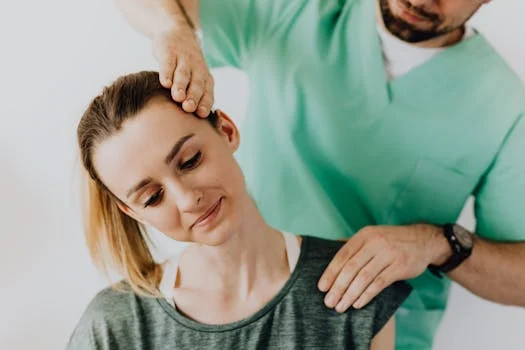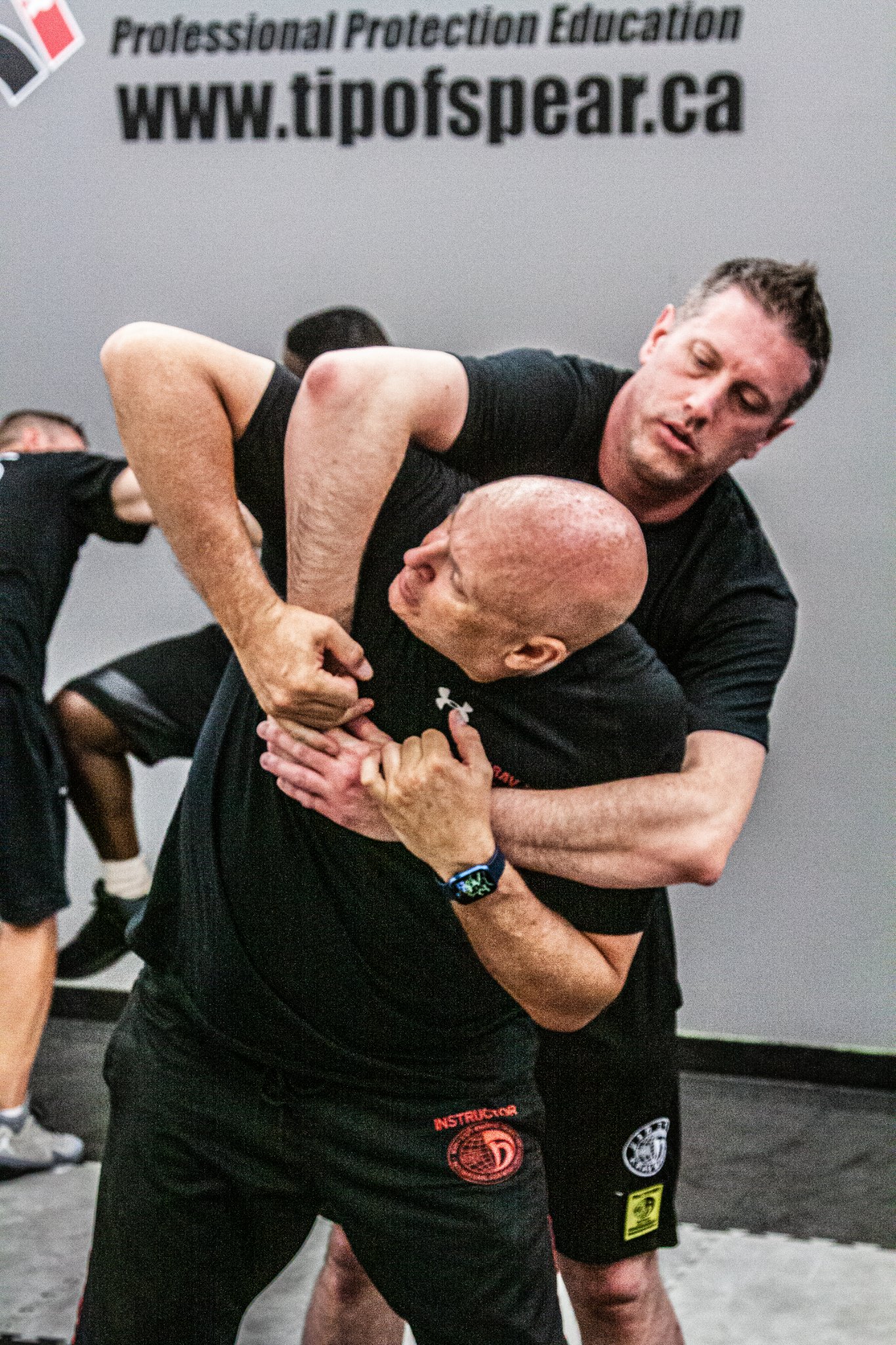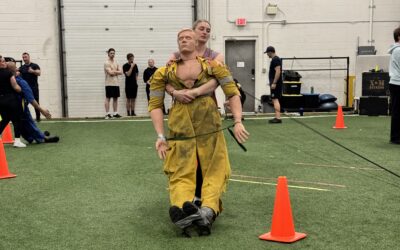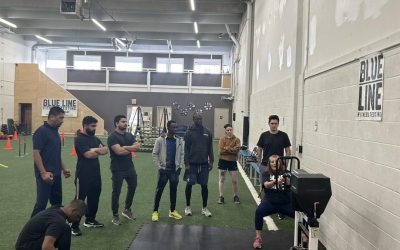In the demanding world of law enforcement, physical fitness isn’t just a requirement – it’s a necessity for maintaining peak performance and ensuring the safety of both officers and the communities they serve. However, the rigorous nature of the job can take a toll on the body, increasing the risk of injuries that may hinder performance and jeopardize long-term health. At Blue Line Fitness Testing, we understand the importance of injury prevention and rehabilitation in sustaining a long and successful law enforcement career. In this month’s blog post, we’ll explore effective fitness strategies aimed at minimizing the risk of injuries and promoting longevity in your career.

blue line fitness testing can help prevent injury and improve your fitness
Getting fit enough to pass your law enforcement fitness tests like the PARE, COPAT, SOPAT, POPAT or APREP shouldn’t be where you fitness journey ends. Once you are on the job, remaining fit for duty is a necessity to ensure your safety, your co-workers safety and the safety of the communities and public we serve.
6 TIPS TO MINIMIZE INJURIES AND STRain
1. Prioritize Functional Training:
Functional training focuses on movements that mimic real-life activities, making it highly relevant for law enforcement professionals. Incorporate exercises that target functional movement patterns such as squatting, lunging, pushing, pulling, and rotating. This approach not only enhances overall strength and mobility but also improves coordination and stability, reducing the likelihood of injuries during physical tasks encountered on duty. Blue Line Fitness Testing offers a weekly class dedicated to Functional Fitness – Join us every Thursday from 9:15-10:15 am to level up your training and increase your functional mobility, fitness and training. You will perform movements you find yourself doing in your day-to-day life. Squatting, pulling, pushing, lifting, etc. to build strength, increase power and improve stamina. Even one functional session a week will provide results that can keep you healthy and strong over your career.
2. Maintain Flexibility and Mobility:
Maintaining optimal flexibility and mobility is essential for preventing muscle imbalances and reducing the risk of strains and sprains. Incorporate dynamic stretching and mobility exercises into your warm-up routine to prepare your body for movement and improve range of motion. A cool down after each exercise session should also be incorporated to ensure muscles can stretch properly and will avoid an increased level of tightness and discomfort after a tough session. Additionally, consider incorporating activities such as yoga or Pilates to enhance flexibility and promote joint health. Blue Line Fitness Testing also offers weekly yoga classes every Wednesday from 7-8pm. These are gentle classes focusing on flowing from pose to pose and linking the movement with the breath. We will offer a variety of modifications to encourage participation of everyone. We do sitting, standing, and inverted postures, and suggest challenging variations for more advanced students, yet fun and non-intimidating options for newer students.
3. Implement Proper Body Mechanics:
Proper body mechanics play a crucial role in injury prevention, especially during tasks that involve lifting, carrying, or physical confrontation. Focus on maintaining a neutral spine and engaging the core muscles to support the back during lifting activities. Additionally, practice techniques for safe and effective handcuffing, defensive tactics, and other law enforcement-specific movements to minimize the risk of injury during encounters with suspects. Classes such as Brazilian Jiu Jitsu and Krav Maga can help you learn proper body mechanics in a physical altercation and provide you with better body awareness and understanding of correct movements.

4. Listen to Your Body:
One of the most important aspects of injury prevention is listening to your body and recognizing warning signs of potential injury. Pay attention to any discomfort, pain, or changes in movement patterns, and address them promptly to prevent further injury. If you experience persistent pain or discomfort, seek guidance from a qualified healthcare professional who can provide appropriate diagnosis and treatment. One of the best things I ever heard was “If you listen to your body when it whispers, you won’t have to hear it scream.”
5. Incorporate Active Recovery:
Incorporating active recovery strategies into your training regimen can help prevent overuse injuries and promote faster recovery between workouts. Include activities such as foam rolling, mobility drills, and low-intensity cardio to improve circulation, reduce muscle soreness, and enhance recovery. Additionally, prioritize adequate rest and recovery to allow your body to repair and rebuild after intense training sessions. Hydration also plays a key role in active recovery, allowing the body to focus on moving lactic acid from the muscles more quickly, reducing pain and discomfort.

6. Seek Professional Guidance:
Lastly, consider working with a certified fitness trainer or physical therapist who specializes in working with law enforcement professionals. They can provide personalized guidance, tailored training programs, and expert advice on injury prevention and rehabilitation strategies specific to your needs and goals. Seek professional support from massage therapists, chiropractors and naturopath’s to assess and treat your body and needs too!
blue line fitness testing wants to ensure our officers are healthy, both physically and mentally
At Blue Line Fitness Testing, we’re committed to supporting the health and longevity of law enforcement professionals through comprehensive fitness testing, training, and resources. By implementing these injury prevention and rehabilitation strategies into your fitness routine, you can safeguard your physical well-being and continue to serve your community with excellence for years to come.
Stay safe, stay strong, and prioritize your health above all else.
For more information on nutrition, wellness and officer fitness, check out our other articles!
FUELING YOUR SHIFTS: PROPER NUTRITION FOR FIRST RESPONDERS
MENTAL RESILIENCE AND LAW ENFORCEMENT FITNESS: THE MIND-BODY CONNECTION







